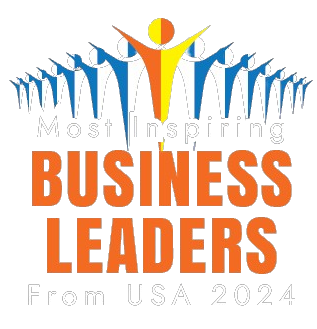
Empowering Young Women In Tech Industry
VP Technical Product Management,
McKesson

My professional journey from Software Engineer to VP leading 300+ resources has been marked by significant moments and experiences in enterprise applications. With degrees in Electrical and Computer Science Engineering from PSG College of Technology, my hands-on experience on the lathe floor as a mom of 2 teenage girls led me to transition into roles that allowed me to lead visionary projects in application development.
I have led strategic initiatives in CPQ, Salesforce, B2B commerce, Reporting & Analytics and Generative AI to drive innovation and create significant value for stakeholders. A core aspect of my leadership has been emphasizing fascination, promoting collaboration to ensure coherence across platform capabilities and delivering comprehensive, impactful solutions.
As an evangelist for modernization features, I actively participate in industry events and contribute to thought leadership. My approach to leadership is also shaped by market analysis and customer research, ensuring our strategies align with industry needs. Recognizing the importance of mentorship early on, I have cultivated a culture of continuous learning within my teams.
In addition to my professional experiences, my academic background and certifications in ERP, Salesforce, SaaS CPQ, and other technologies have equipped me with the knowledge to lead and drive successful product management initiatives. These elements have collectively shaped my leadership journey and approach.
Today, innovation within the cybersecurity theme is just as critical as the cybersecurity itself. I implemented a comprehensive cybersecurity framework integrated with our innovation processes to ensure a proactive approach. This included thorough risk assessments, adopting a “Security by Design” approach, regular employee training, and collaboration with external security experts. One successful example is deploying an advanced threat detection and response system using machine learning and behavioral analytics to identify and respond to cyber threats in real time. This enhanced our cybersecurity posture and instilled confidence among stakeholders and customers, demonstrating our commitment to innovation while prioritizing security.
I actively engage in continuous learning, networking, and market research to stay ahead of industry trends and changes. I read industry publications, attend conferences, participate in webinars, evaluate nominations as a judge on international forums and mentor college students. Forums and online communities are also quite helpful in connecting with industry professionals and thought leaders. I also conduct thorough market research and analyze customer feedback to understand market dynamics. However, the most effective way to stay abreast of industry trends is by following influential thought leaders and collaborating with internal teams and external partners. Encouraging a culture of experimentation and innovation helps me explore emerging trends and adapt strategies effectively.
Emerging technologies poised to revolutionize healthcare include AI and machine learning for diagnostics and personalized treatments, the Internet of Medical Things (IoMT) for real-time patient monitoring, and telemedicine for remote consultations. Blockchain technology offers enhanced data security and interoperability, while genomics and precision medicine advances enable personalized treatments based on genetic data. Virtual and augmented reality improve medical training and patient education. These innovations promise to enhance healthcare delivery, improve patient outcomes, and increase operational efficiency. Healthcare organizations must adopt these advancements to harness their potential benefits completely.
The greatest barrier I faced in my career was the shift from merit-based advancement to focusing on networking and relationships because it was no longer just about what you knew but who you knew. To overcome this, I prioritized continuous learning and personal development, attending professional programs, conferences, and workshops to stay current with the latest trends. I also actively built strong relationships within the organization, seeking mentors and senior leaders for guidance. This approach allowed me to navigate workplace politics, demonstrate my expertise, and leverage my network for career growth. These experiences played a significant role in what I am today as they taught me the importance of adaptability, resilience, and continuous self-improvement.
At McKesson, I led multiple transformation initiatives, including creating a centralized enterprise services platform that unified sales, customer service, and back-office support resulting in significant cost reduction and streamlined operations. I overhauled the customer-facing CPQ tool, enhancing remarkable revenue gains and improving sales efficiency. I also successfully implemented Sales and Service Clouds, CPQ, and ERP solutions, significantly boosting customer experience and sales efficiency. Additionally, I developed go-to-market strategies and product roadmaps, leveraging market analysis and customer research to enhance product offerings and increase market share while improving customer satisfaction.
In my past roles, I have learned the importance of strategic vision and execution, cross-functional collaboration, customer focus, thought leadership, and a results-oriented approach. I diversely leverage these lessons in my current role by setting a clear vision for my team, enabling active collaboration across departments and utilizing market analysis to meet customer needs. I participate in industry events for thought leadership to enhance brand visibility and drive business results. Additionally, I focus on team development and mentoring, ensuring professional growth, and managing change effectively to drive innovation and modernization efforts. These experiences enable me to contribute significantly to my current role and organization.
Today, product managers’ biggest challenge is balancing priorities in a rapidly changing market. To navigate this, they should prioritize product objectives effectively, listen to customer feedback, embrace agility, collaborate across functions, stay informed about industry trends, develop strong communication skills, and be data-driven. By focusing on these areas, product managers can drive successful product development, adapting and innovating to meet evolving customer needs and market conditions.
